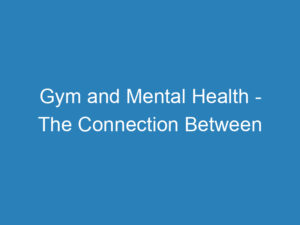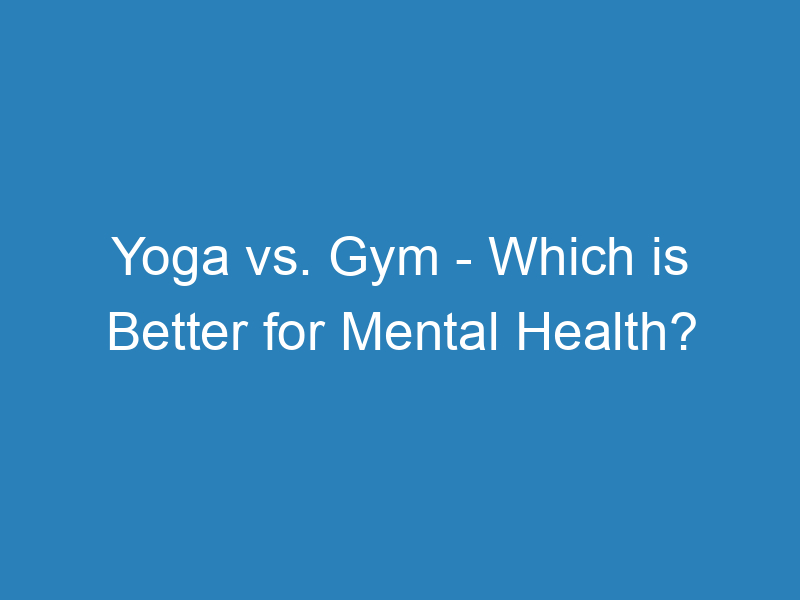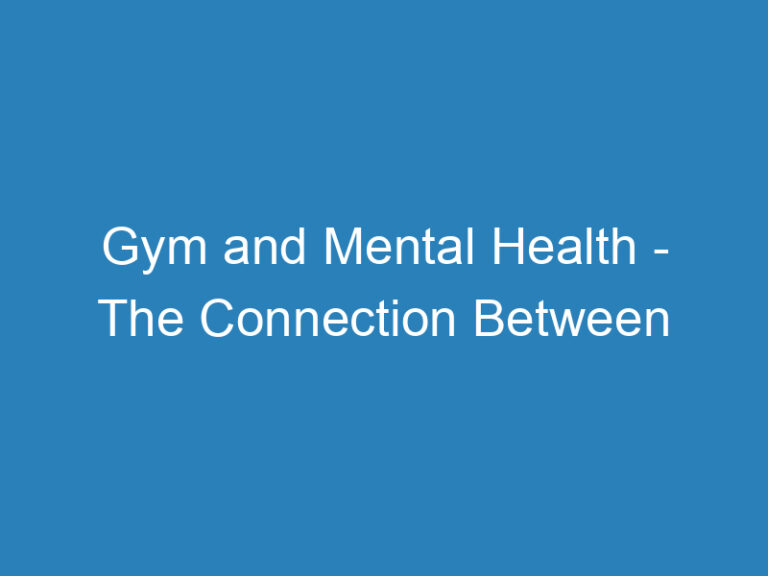When it comes to improving mental health, both yoga and going to the gym have their own unique benefits. The choice between the two largely depends on personal preferences and individual goals. Let’s take a closer look at the advantages that yoga and gym workouts offer, so you can make an informed decision about which one is better for your mental well-being.
The Benefits of Yoga for Mental Health
Yoga is a centuries-old practice that aims to bring harmony between mind and body. It combines physical postures, breathing exercises, and meditation techniques to promote relaxation and reduce stress. Practising yoga regularly has been shown to have numerous positive effects on mental health.
1. Stress Reduction: Yoga activates the parasympathetic nervous system, which helps to counteract the effects of the body’s stress response. By focusing on the breath and engaging in mindful movement, yoga helps to reduce stress and anxiety levels.
2. Mindfulness and Presence: Yoga encourages practitioners to stay present and mindful during their practice. This cultivates a sense of focus and helps to calm the mind, reducing racing thoughts and promoting mental clarity.
3. Emotional Regulation: Through various poses and breathing techniques, yoga can help regulate emotions and improve mood. Deep breathing exercises, for instance, can activate the body’s relaxation response and increase feelings of calmness and well-being.
4. Improves Sleep Quality: Regular yoga practice has been linked to better sleep quality. By reducing stress and fostering a sense of relaxation, yoga can help alleviate sleep disturbances and promote a more restful night’s sleep.
The Benefits of Gym Workouts for Mental Health
Heading to the gym for a workout session also offers a wide range of mental health benefits. Engaging in regular physical exercise has long been associated with improved mood and overall well-being.
1. Release of Endorphins: Exercise, particularly aerobic activities like running or cycling, stimulates the release of endorphins in the brain. These natural feel-good chemicals can boost mood, reduce feelings of anxiety, and increase overall happiness.
2. Enhanced Cognitive Function: Research shows that regular exercise can improve cognitive function and enhance memory and learning. Gym workouts that include cardio and strength training can have a positive impact on brain health, increasing mental clarity and focus.
3. Social Interaction: The gym provides an opportunity for social interaction and a sense of community. Engaging in group fitness classes or simply working out in a shared space can combat feelings of isolation, enhance social bonds, and boost overall mental well-being.
4. Improved Body Image: Engaging in regular exercise and witnessing physical transformations can lead to improved self-esteem and body image. Gym workouts that focus on strength training and toning can help individuals feel more confident and positive about their bodies.
Choosing the Right Approach for You
While both yoga and gym workouts offer distinct benefits for mental health, choosing the right approach ultimately depends on personal preferences and individual needs. Some individuals may find solace and relaxation in the mindful practice of yoga, while others may thrive on the high-energy atmosphere of the gym.
Consider the following factors when making your decision:
1. Personal Goals: Determine what you hope to achieve with your exercise routine. If stress reduction and mindfulness are your primary goals, then yoga may be the better option. However, if you want to focus on cardiovascular health, muscle building, or weight loss, then hitting the gym may be more suitable.
2. Individual Preferences: Take into account your likes and dislikes when it comes to physical activity. If you enjoy quiet and introspective practices, yoga may be a better fit. On the other hand, if you thrive on energetic environments and enjoy variety, the gym may be a more appealing choice.
3. Accessibility: Consider the availability and accessibility of yoga classes or gyms in your area. Think about factors such as location, schedule, and affordability when making your decision. It’s important to choose an option that you can easily incorporate into your daily routine.
In conclusion, both yoga and gym workouts offer significant benefits for mental health. Yoga promotes mindfulness, stress reduction, and emotional regulation, while gym workouts improve mood, cognitive function, and body image. Ultimately, the best approach depends on personal preferences, goals, and accessibility. Whether you choose to integrate yoga or gym workouts into your routine, prioritizing physical activity is essential for maintaining good mental well-being.

















